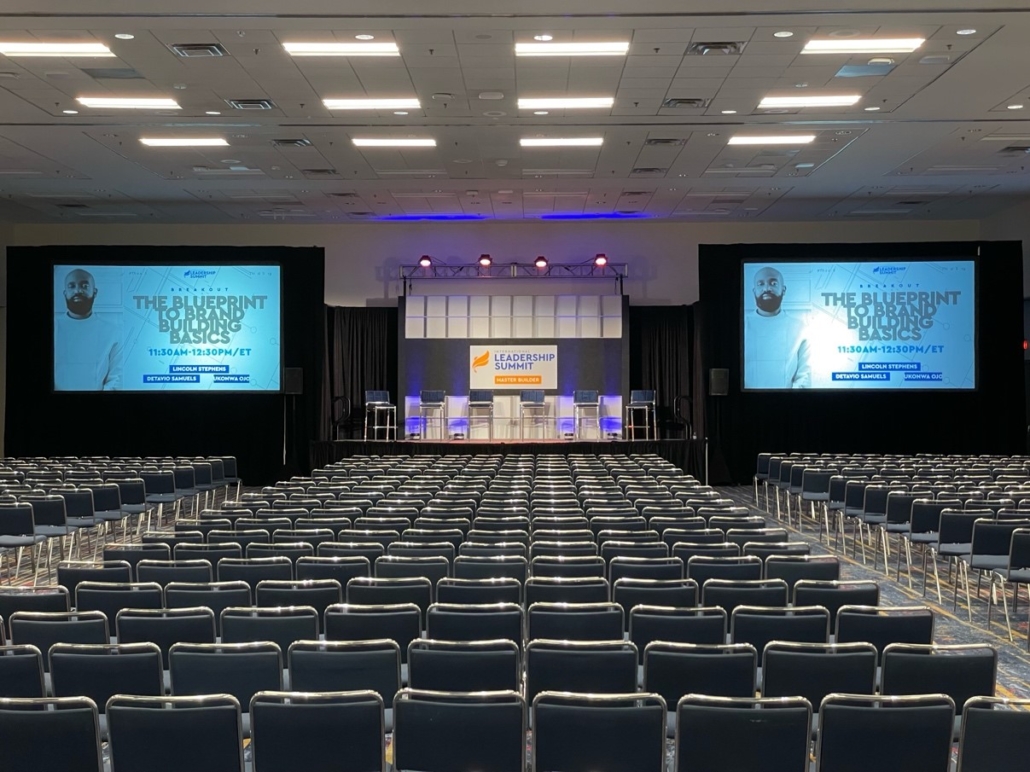The Ultimate Guide to Audio Visual Equipment Rentals
Planning an event involves several important decisions, and one of the most crucial is choosing the right av equipment rentals. From projectors and sound systems to lighting and staging, the audio visual setup can greatly impact the success of your event. But with so many options available, how do you know which equipment is the best fit for your specific needs?
In this comprehensive guide, we will walk you through everything you need to know about av equipment rentals. Whether you’re organizing a corporate conference, a wedding reception, or a live concert, we’ve got you covered. With our expert tips and insights, you will be able to make informed decisions and create an unforgettable experience for your audience.
We will discuss the factors to consider when choosing av equipment rentals, the different types of equipment available, and the questions you should ask your rental provider. Our aim is to equip you with the knowledge and confidence to select the best equipment for your event, ensuring seamless audio and visual experiences that leave a lasting impression on your guests.
Get ready to elevate your event with the ultimate audio visual equipment rental guide. Let’s dive in!
Types of AV Equipment Rentals
When it comes to audio visual equipment rentals, there is a wide range of options to choose from. Understanding the different types of equipment available will help you determine which ones are essential for your event. Here are some of the most common types of audio visual equipment:
- Projectors: Projectors are a staple in any audio visual setup. They allow you to display slideshows, videos, and other visual content on a large screen or wall. When choosing a projector, consider factors such as brightness, resolution, and compatibility with your source devices.
- Sound Systems: Sound systems are crucial for ensuring clear and high-quality audio at your event. They typically consist of speakers, amplifiers, mixers, and microphones. When selecting a sound system, consider the size of your venue, the number of attendees, and the type of event you’re hosting.
- Lighting Equipment: Lighting can greatly enhance the visual experience at your event. From stage lighting to ambient lighting, there are various types of lighting equipment to choose from. Consider the mood you want to create, the color options available, and the ease of setup and control.
- Staging and Backdrops: Staging and backdrops provide a professional and visually appealing setting for your event. They can be customized to fit the theme and style of your event. When choosing staging and backdrops, consider the size, height, and weight capacity needed to accommodate your performers and equipment.
- Video Walls and LED Screens: Video walls and LED screens are becoming increasingly popular for events that require large-scale visual displays. They are ideal for showcasing live feeds, videos, and dynamic content. Consider factors such as screen size, resolution, and compatibility with your content sources.
- Recording and Broadcasting Equipment: If you want to capture and share your event with a wider audience, recording and broadcasting equipment is essential. This can include cameras, video switchers, streaming devices, and recording software. Consider the level of production quality you require and the technical expertise needed to operate the equipment.
Remember, the types of audio visual equipment you choose will depend on the specific requirements of your event. Consider the nature of your event, the venue, the number of attendees, and the desired audio and visual experience.
Factors to Consider When Choosing AV Equipment
Choosing the right audio visual equipment for your event involves careful consideration of several factors. By keeping these factors in mind, you can ensure that the equipment you select aligns with your event goals and provides a seamless experience for your audience. Here are some key factors to consider:
- Event Type: The type of event you’re organizing will dictate the audio visual requirements. For example, a corporate conference may require a sophisticated sound system and projectors for presentations, while a live concert may require a larger sound system and dynamic lighting effects.
- Venue Size: The size of your venue will determine the power and coverage requirements of your audio visual equipment. Larger venues may require more powerful sound systems and brighter projectors. It’s important to consider the acoustics and dimensions of the venue to ensure optimal audio and visual experiences.
- Audience Size: The number of attendees at your event will impact the audio visual setup. Larger audiences may require more speakers and a higher capacity sound system to ensure everyone can hear clearly. Consider the seating arrangement and the distance between the stage and the farthest seat when selecting your equipment.
- Budget: Your budget will play a significant role in determining the audio visual equipment you can afford. It’s important to strike a balance between quality and cost. Consider renting equipment from reputable companies that offer competitive pricing and flexible rental packages.
- Technical Expertise: Consider the technical expertise required to set up and operate the audio visual equipment.
- Event Duration: The duration of your event will impact the rental cost and the logistics of setting up and dismantling the equipment. Make sure to communicate the event schedule to your rental provider to ensure they can accommodate your needs.
By considering these factors, you can narrow down your options and select the audio visual equipment that best suits your event requirements. Don’t hesitate to consult with your rental provider for expert advice and recommendations based on their experience.
Tips for Selecting the Best Audio Visual Equipment for Your Event
Selecting the best audio visual equipment for your event is crucial for creating a memorable experience. Here are some tips to help you make the right choices:
- Define Your Event Goals: Clearly define the goals and objectives of your event. Determine what you want to achieve with the audio and visual elements. This will help you prioritize the equipment needed to meet those goals.
- Consult with Experts: Seek advice from audio visual experts, whether it’s from your rental provider like us or an independent consultant. They can offer valuable insights and recommend the most suitable equipment based on your event requirements.
- Consider Compatibility: Ensure that the audio visual equipment you choose is compatible with your content sources. For example, if you plan to play videos from a specific device, make sure the projector or screen supports the required connections.
- Test the Equipment: Before the event, test the equipment to ensure it functions properly. This includes checking audio levels, video quality, and lighting effects. Conducting a run-through will help identify any potential issues and allow time for troubleshooting.
- Have Backup Equipment: It’s always wise to have backup equipment available in case of technical issues. This can include spare microphones, cables, or even a backup projector. Prepare for the unexpected to ensure a smooth event experience.
- Communicate with the Venue: Coordinate with the venue staff to understand any restrictions or requirements related to audio visual setups. This includes power availability, access to certain areas, and any specific rules or regulations.
By following these tips, you can make informed decisions when selecting audio visual equipment and ensure a successful event.
Common AV Rental Mistakes to Avoid
Renting audio visual equipment can be a complex process, and mistakes can lead to costly consequences. Here are some common mistakes to avoid:
- Not Considering the Event Space: Failing to consider the size, acoustics, and layout of the venue can result in inadequate audio coverage, poor visibility, or improper lighting. Always visit the venue and communicate with the rental provider to ensure the equipment is suitable.
- Underestimating Power Requirements: Audio visual equipment requires power, and underestimating the power requirements can lead to power failures or equipment malfunctions. Consult with the rental provider or a qualified electrician to ensure sufficient power supply.
- Neglecting Backup Equipment: Technical issues can occur at any event, so it’s crucial to have backup equipment available. Not having backup options can disrupt the event and leave you scrambling for solutions.
- Relying on Inadequate Setup Time: Setting up audio visual equipment takes time, especially for larger events or complex setups. Make sure you allocate sufficient time for setup and testing to avoid rushing or compromising on quality.
- Overlooking Technical Support: Adequate technical support is essential, especially for events with complex audio visual setups. Ensure that your rental provider offers reliable technical support throughout the event.
- Ignoring Compatibility Issues: Ensure that all your audio visual equipment is compatible with each other and with your content sources. This includes checking the compatibility of cables, connectors, and software.
By being aware of these common mistakes, you can take proactive measures to avoid them and ensure a smooth audio visual experience for your event.

Cost Considerations for Audio Visual Equipment Rentals
Cost Considerations for AV Equipment Rentals
The cost of renting audio visual equipment can vary depending on several factors. Here are some cost considerations to keep in mind:
- Rental Period: The duration of your rental period will impact the overall cost. Longer rental periods may offer discounted rates, while shorter rental periods are typically charged at a higher rate.
- Equipment Quality: Higher-quality equipment may come at a higher price. Determine the level of quality you require based on your event goals and budget constraints.
- Additional Services: Some rental companies such as AVR Expos offer additional services such as delivery, setup, and technical support. These services may incur additional costs but can save you time and effort.
- Insurance: Consider whether you need insurance coverage for the rented equipment. Accidents and damage can occur, so it’s important to understand the insurance options available and their associated costs.
- Taxes and Fees: Be aware of any additional taxes or fees that may apply to your rental. These can vary depending on your location and the rental company’s policies.
- Cancellation Policies: Familiarize yourself with the rental company’s cancellation policies. Understand any fees or penalties associated with canceling or modifying your rental order.
It’s important to request detailed quotes from rental providers, including all costs and potential additional charges. This will help you compare options and make an informed decision based on your budget.
Benefits of AV Equipment Rentals
Renting audio visual equipment offers several benefits compared to purchasing. Here are some advantages of renting:
- Cost Savings: Renting equipment can be more cost-effective, especially if you don’t require the equipment on a regular basis. It eliminates the need for upfront investments, maintenance costs, and storage expenses.
- Access to Latest Technology: Renting allows you to access the latest audio visual technology without the need for constant upgrades. This ensures that your event benefits from state-of-the-art equipment and features.
- Flexibility: Renting provides flexibility to choose the equipment that best suits your event requirements. You can easily upgrade or downgrade equipment based on the scale and nature of your events.
- Technical Support: Rental companies often offer technical support throughout your event. This can be invaluable, especially for complex setups or troubleshooting issues during the event.
- Variety of Options: Rental companies have a wide range of equipment options to choose from, allowing you to customize your audio visual setup based on your event goals and budget.
- Convenience: Renting equipment eliminates the need for storage, maintenance, and transportation. Rental companies take care of these aspects, allowing you to focus on other event preparations.
By renting audio visual equipment, you can enjoy these benefits and ensure a professional and seamless audio visual experience for your event.



